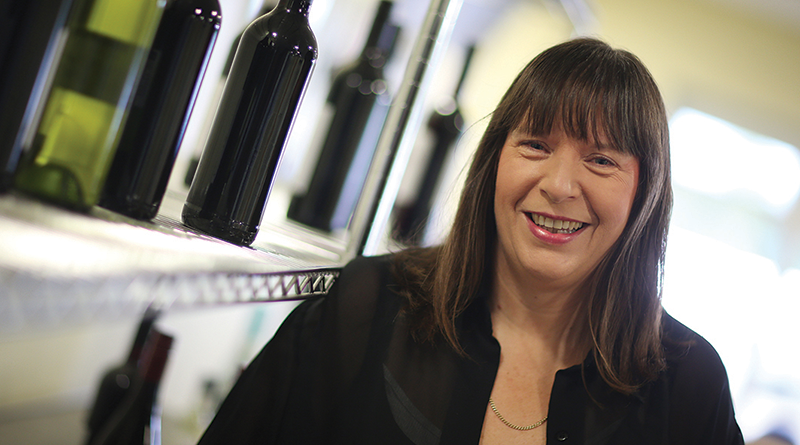Looking Forward to 2024 with Lanchester Wines

Lesley Cook is Lanchester Wines’ director of purchasing. We caught up with Lesley to look at what will affect the wine trade in 2024.
One of the biggest impacts to the wine trade in 2023 was the Alcohol Duty Reform which saw wine duty increase by 20%. This will continue to impact the trade in to 2024 and beyond, with further half percent incremental duty changes due in February 2025.
This increase in duty has been very detrimental to every alcohol-related business over the last six months. Unfortunately, we can’t offset the costs; businesses in our position don’t make enough profit to offset costs so unfortunately these have to be passed onto our customers. But, where we had to increase our prices, this increase is 100% duty on every line and, of course, some products, such as Sparkling wines and lower ABV, have been reduced, which has also been passed onto the customer.
There’s a lot of admin involved in the importation of alcoholic goods – we’re an HMRC bonded warehouse and Authorised Economic Operator (AEO) which means we’re effectively an inland port. Our bond and logistics departments work through every single wine to ensure tax codes are implemented correctly and, if the Government continues with its plans for February 2025, it’ll cost tens of thousands of pounds in administration and computer systems not just for our business, but for every business in the wine trade.
Wine is an agricultural crop: the climate is heavily involved in determining the alcohol level (unlike beer and spirits which can be determined very accurately on production). A hot growing season naturally increases alcohol by volume while cold, wet weather decreases it. This could mean that a wine from one vintage goes up by two or three duty increments from the previous vintage.
The alcohol percentage of wine, in my opinion, isn’t the issue. High ABV wines such as Barolo, Chateauneuf-du-Pape, Amarone are high quality, expensive wines to be enjoyed for what they are and certainly not for binge drinkers.
We’re currently lobbying Government to try and stop this from happening, as I’m sure other alcohol businesses and bodies are too. It is my thought that we can maintain a stepped alcohol duty but at a simplified scale:
1. Below 11%
2. 11% – 13%
3. 13% – 15%
4. 15%+
This will not only maintain duty tax receipts but also save the UK wine industry millions of pounds in administrative fees. Although, obviously we’d prefer to leave the alcohol duty as it is.
We’ve introduced a couple of lower ABV wines within our own brand portfolio which will help minimise duty. I’ve tried a lot of lower ABV wines, all the wines you can think of, but the quality can suffer when you remove some of the alcohol and customers don’t want that – we don’t want that. We’ve only progressed with Pinot Grigio and White Zinfandel because they’re both naturally lower in ABV and lowering by a percentage or two hasn’t reduced the quality. But some lower ABV wines can be green or tannic, you wouldn’t know what you were tasting. They’re not indicative of the varietal and I’m not prepared to lower our quality.
We started working with our producers as soon as we knew these duty changes were imminent – to achieve these lower ABV, the grapes are harvested earlier and the vines have been covered to reduce sun exposure. As you can imagine, this takes a lot of planning, it can’t be done instantly and has to be changed while the grapes are starting to grow or before. But this ensures the wine still has the mouthfeel and profile you’d expect. Customers want to taste a Pinot Grigio, not a watered-down version.
I attended the World Bulk Wine Exhibition (WBWE) in Amsterdam last month and many of the vineyards are already planning to pick early next year. But this is a huge risk for them – if the wine doesn’t have the right flavour profile and they can’t sell it, then they’ve got no home for this wine. It’s only the UK Government implementing these tax regimes; wine is sold across the globe, growers can’t amend their entire vineyards just to flex to UK requirements. At some point, someone is going to lose out – its unlikely the growers will continue to forfeit their crops purely for one country, so I guess they’ll look to sell elsewhere and the UK will suffer. The next twelve months will be crucial, so watch this space.
There is of course a glimmer of positive news, in that sparkling wines saw a reduction in alcohol duty. For Lanchester Wines, the time was quite fortuitous as we’ve just launched a new partnership with Domain Moutard, the renowned Champagne house and also introduced new sparkling Italian ranges; an organic Raboso Frizzante and Valdobbiadene Conegliano Prosecco Superiore DOCG, both of which are also lower in ABV (11%).
And these producers continue to innovate to ensure they remain relevant. For example, Domain Moutard has created a pair of Pet Nats (Pétillant-Naturel) from grapes grown in its vineyards in Tonnerre, close to Chablis in Burgundy. The Pet’ Mout’ wines, a Chardonnay and a Pinot Noir rosé, are produced according to the Methode Ancestral – an ancient method of making sparkling wines. These natural wines have gained popularity in recent years as an artisanal alternative to sparkling wines.
These Pet Nats signal an evolution. We have a world-renowned Champagne house growing grapes near Chablis and using an ancient winemaking method to produce cutting edge on-trend wines. This is really exciting. Moutard isn’t afraid to experiment and have fun with their wines, and what’s more fun than a farting sheep (a Péter Mouton) on the bottle?
